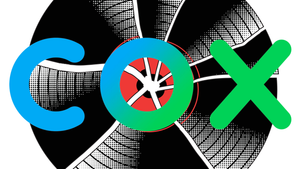Cox Communications has made another submission with the US Supreme Court, which will next month consider the internet service provider’s legal battle with the major record companies. Cox wants the top court to overturn a billion dollar judgement won by the majors in 2019, which set an important precedent regarding the role of ISPs in helping rights owners like record labels battle online piracy.
That judgement held Cox liable for its users’ music piracy, to the tune of a billion dollars, because it failed to deal with identified repeat infringers among its customer base. Aside from the mega-damages, it was an important ruling for the music industry, because it confirmed that ISPs have obligations under American copyright law to help rights owners stamp out piracy.
Unsurprisingly, Cox continues to ramp up the drama regarding the potential impact of this judgement, and the precedent it sets, if it is allowed to stand. This has been the ISP’s tactic throughout its appeal.
Citing submissions made to the Supreme Court by other internet companies and Donald Trump’s government, it says that precedent will have “seismic and dangerous ramifications”, requiring ISPs like Cox to disconnect large numbers of customers based on copyright complaints from record labels.
In their own filing last month, the majors played down all this drama, insisting that companies like Cox simply need to to comply with the Digital Millennium Copyright Act, which provides a safe harbour that prevents an ISP from being held liable for its users’ piracy providing certain obligations are met.
But, as the majors like to remind everyone, Cox routinely ignored those obligations, with one key Cox exec telling his colleagues in an internal email “fuck the DMCA”.
But Cox continues to insist that the precedent set by the major’s billion dollar judgement is, in fact, a new ‘two-notices-and-terminate’ rule - ie if any one internet account receives two copyright complaints against it, an ISP must disconnect the account or face copyright liabilities. Even if that internet account is used by multiple people - for example at a college or hospital - and it’s not clear who actually infringed copyright.
Although the majors now “try to distance themselves from this two-notices-and-terminate rule”, Cox says in its new filing, it’s that rule that “they must defend”. And it’s that rule, it then argues, that will have “seismic and dangerous ramifications”, which is to say widespread disconnections.
Beyond the doom and gloom predictions, Cox also insists that the major’s interpretation of American copyright law is also wrong, despite the fact the music companies and their lawyers persuaded judges and a jury in other US courts that the ISP could and should be held liable for its users’ piracy.
In its new filing, the ISP writes that - no matter “how much invective” the majors “hurl at Cox”, no matter “how many times they quote internal emails or how often they invoke the jury”, the music companies’ arguments “fail as a matter of law on every level”.

